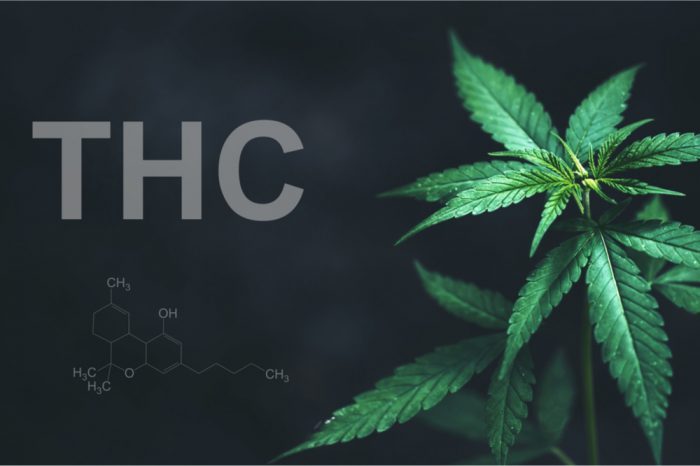And it works so well in the lab that there is a patent pending to make a streamlined process to convert CBD to THC. What does this mean for your edibles? Turns out, not much.
EDITOR’S NOTE: While this technique is possible in vitro (outside a living organism) studies have more recently found that the research does not extrapolate [1]A Conversion of Oral Cannabidiol to Delta9-Tetrahydrocannabinol Seems Not to Occur in Humans Gerhard Nahler, Franjo Grotenhermen, Antonio Waldo Zuardi, José A.S. Crippa Cannabis Cannabinoid Res. … Continue reading to in vivo studies on the human stomach. This means that cannabis or CBD consumers probably do not have to worry about CBD converting to THC in their stomach acid.
Structurally, CDB and THC are very similar. However, they differ significantly in their mode of action and properties. CBD is non-psychoactive cannabinoid, owing to its very weak ability to activate the CB1 receptor. Indeed, CBD has been classified as an allosteric modulator of CB1, meaning that it modifies the receptor in such a way that binding of cannabinoids, such as anandamide or THC, are dramatically reduced. As such, CBD is free of psycho-active properties and is devoid of intoxicating effects. Now, we’re just discovering that we can actually make one into the other: we can convert CBD to THC.
In The Presence of Acid CBD Converts to THC
At the same time, CBD in solution is very unstable. You have to store it at temperatures below 80C and protect it from light. Under acidic conditions, CBD converts to THC and even other cannabinoids. Scientists call this process isomerization.
This has at least two implications:
- CBD in ingested cannabis-containing products may convert to THC in the acidic environment of the stomach.
- We can convert CBD to THC chemically, by a series of acid extraction and purification techniques.

Can CBD Convert to THC in Your Stomach?
Scientists have recently been exploring the possibility of CBD converting to THC in our stomachs. Importantly, this conversion would never occur using other methods of consumption, such as inhalation or topicals.
In one study, gastric fluid was made artificially and adjusted to pH 1 (which is that of the actual gastric fluid) and CBD was dissolved in methanol. About 85% of the present CBD isomerized to a mixture of D9- and D8-THC.
In another study the composition of gastric juice was different than stomach acid pH and the conversion rate to THC was only 2.9%.
It is apparent that the different compositions of the in vitro gastric fluid produce very different results. This means we should interpret this data with caution.
Additionally, the gastric fluid in your body contains a plethora of gastric enzymes, such as
- pepsin,
- gastrin,
- amylase,
- and various inorganic ions, such as potassium, sodium and calcium.
Since CBD is capable of significant protein binding, it is possible that in the stomach it is protected from the acidic environment via this mechanism. Therefore, it remains true that in biological systems, such as the human GI tract, there have been no conclusive reports of CBD conversion to THC.
Patent to Convert in the Works
Still, theoretically, because of similar chemical structure between CBD and THC, the possibility of CBD conversion to THC, using a series of acid treatments and extraction by chromatography techniques, remains valid. Indeed, a patent application has been filed describing the series of steps to accomplish this.

Conversely, you can appreciate the utility of this conversion. Especially when you consider how certain cannabinoids, such as D8-THC, are very minor parts of the cannabis plant. D8-THC is about 50% less potent than D9-THC in psychoactive effects. However, it is also 200% more effective as an anti-nauseant than D9-THC.
In this patent, CBD dissolve in an organic solvent (i.e. toluene). Next, scientists separated the organic and aqueous phases. They did so by evaporating the aqueous phase and passing it through a high performance liquid chromatography purification system. To perform this, scientists use a column of silica gel, which yields 86% D8-THC.
They perform the entire reaction in a nitrogen atmosphere, rather than room air. This is to prevent oxidation of the reaction intermediates. That means they can increase the yield of the pure compound. Changing the starting organic solvent to methylene chloride and with a few modification steps, the same extraction and purification protocol yields D9-THC at about 57% efficiency, which is 98.7% pure.
Not a DIY Project
Therefore, chemical isomerization of CBD to D8- and D9-THC is possible in a well-equipped chemistry laboratory set-up. The instruments needed for extraction and purification, such as HPLC and gas chromatography mass spectrometer are rather pricey luxury items. And knowing how to operate them requires years of work and deep understanding of the principles of organic chemistry. In other words, successful completion of these procedures definitely necessitates the professional set-up rather than one’s kitchen or a garage.
EDITOR’S NOTE: While this technique is possible in vitro (outside a living organism) studies have found that the research does not extrapolate to in vivo studies on the human stomach. This means that cannabis or CBD consumers do not have to worry about CBD converting to THC in their stomach acid.
References






Walter Green
Organic chemistry 🙂
Paola Cubillos
Can I ask for this article to be retracted? The headline is very misleading and not consistent with results from in-vivo experiments https://www.ncbi.nlm.nih.gov/pmc/articles/PMC5510776/
Mark Scialdone
The question is not why will CBD convert to THC under acidic conditions. We know the answer to that, it’s thermodynamics. The question is why will it not convert in the gut. I believe it has to do with its hydrophobicity protects it from converting. The acid promoted process of conversion in solvents of CBD to both delta-9 with Lewis acids and delta-8 with protocol acids has already been described previously in the chemical literature by Mechoulam and likely cited as prior art against this patent application.